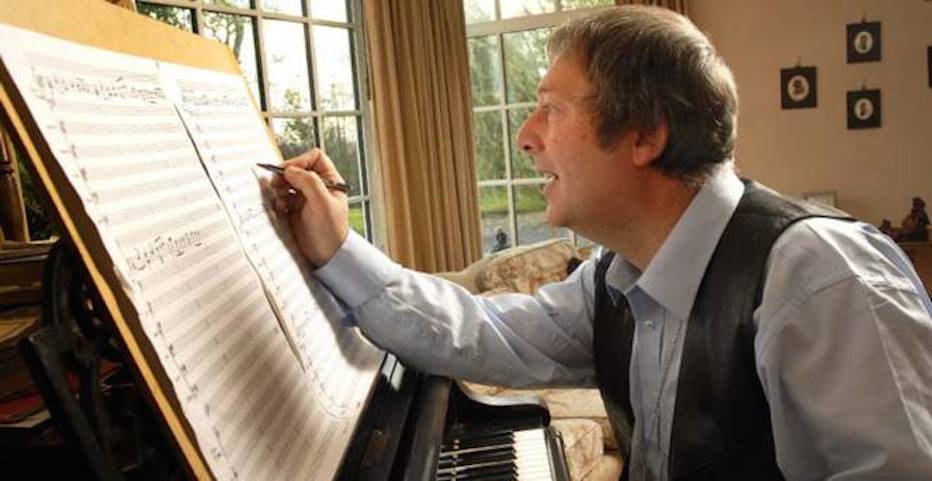Five Questions for Michael Holohan
Composer Michael Holohan recently celebrated his 60th birthday and is the featured composer in a special birthday concert on 29 January at the Hugh Lane Gallery, Dublin. To mark this occasion CMC asked him five questions about the concert and on reaching 60.
Tell us about the programme for your 60th birthday concert?
The programme consists of chamber works for different combinations which I have composed over a number of years. Paul Roe will perform Chatterbox for clarinet and O Breath for bass clarinet. The two pieces were composed for The Containers Project at The Galway Arts Festival in 2000. Sunset on Inishmore for clarinet and piano recalls happy days on Inishmore and is dedicated to my daughter Liadan who spent a number of summers on the island working as a student teacher in the Irish College.
The piano piece Carving the High Cross was commissioned for the Composer’s Choice series which was held in the National Concert Hall in 2006. It was inspired by the monumental high cross at Monasterboice, Co Louth and also features the use of extended piano techniques.
Brian Dunning will perform The Snotgreen C for flute. Based on the first chapter of Ulysses this piece was composed for the Centenary of James Joyce. The premiere was given in the Joyce Tower, Sandycove on Bloomsday 2004.
And always that wind was written for electric flute and was commissioned by the National Concert Hall for the Irish Polar Heroes Evening 2012 which commemorated the achievements of Sir Ernest Shackleton.
The Forge was commissioned by the Irish pianist Therese Fahy for her Handprint project in 2014. It was inspired by the poem of the same name and is dedicated to memory of its author Seamus Heaney.
Soprano Niamh Browne will perform The Given Note, Seamus Heaney’s evocative poem about the Blasket Islands.
There will also be a short improvisation performed by Brian Dunning, Daniel Roe percussion, Michael Holohan and Paul Roe.
There is a range of works on the programme from throughout your composing career . Was it important when devising the programme that the concert included a balance of old and new works?
Yes, I was trying to achieve some type of retrospective look at my career over the years as well as including something up to date.
You are also one of the performers in the concert, and you have been involved in performing your own works over the years. Does performing your own works change your relationship with your music?
Yes, on the plus side it brings one very close to the work in another way. You get ‘inside the work’ and discover all the performing problems. It can be a nervous challenge but it is a great thrill if the performance comes off well.
Reflecting on your work over the past 40 years and beyond, are you still influenced by the same things or have these changed or evolved in any way?
A: I am still fascinated by Irish Archaeology, Mythology, Literature and History. I constantly stumble across a new idea or theme and there never seems to be enough time to complete all my artistic dreams and projects. I have a wish to write two new large scale orchestral works and there may even be ‘a dreaded opera lurking about’ provided the ghost of Boulez doesn’t blow up all the Irish opera houses!
How has the scene for new music in Ireland changed for you since starting out as a young composer in the early 1970s?
There has been a huge growth in the number of Irish composers. The AIC and the ICC must have over 200 members now. This is probably due to composition being taken more seriously in certain universities and academic institutions. In the early 70s we were a much smaller group and there was a greater sense of collegiality among composers. In recent years with the advent of new political and right wing economic philosophies there has been a marked increase in ‘individualism’ in all the arts. There are not enough resources to go around with the result that the well meaning support systems have turned into ‘competitive rat races’ which actually have nothing to do with the act of composition or the artistic imagination. Great spontaneous ideas are a thing of the past. All artistic endeavours have now to be corralled into strict deadlines and a strange infatuation with peer panels has suddenly grown up, particularly ‘international ones’. Older artists who lack business acumen, IT and social media skills have very little presence online and they increasingly become unknown and isolated.

